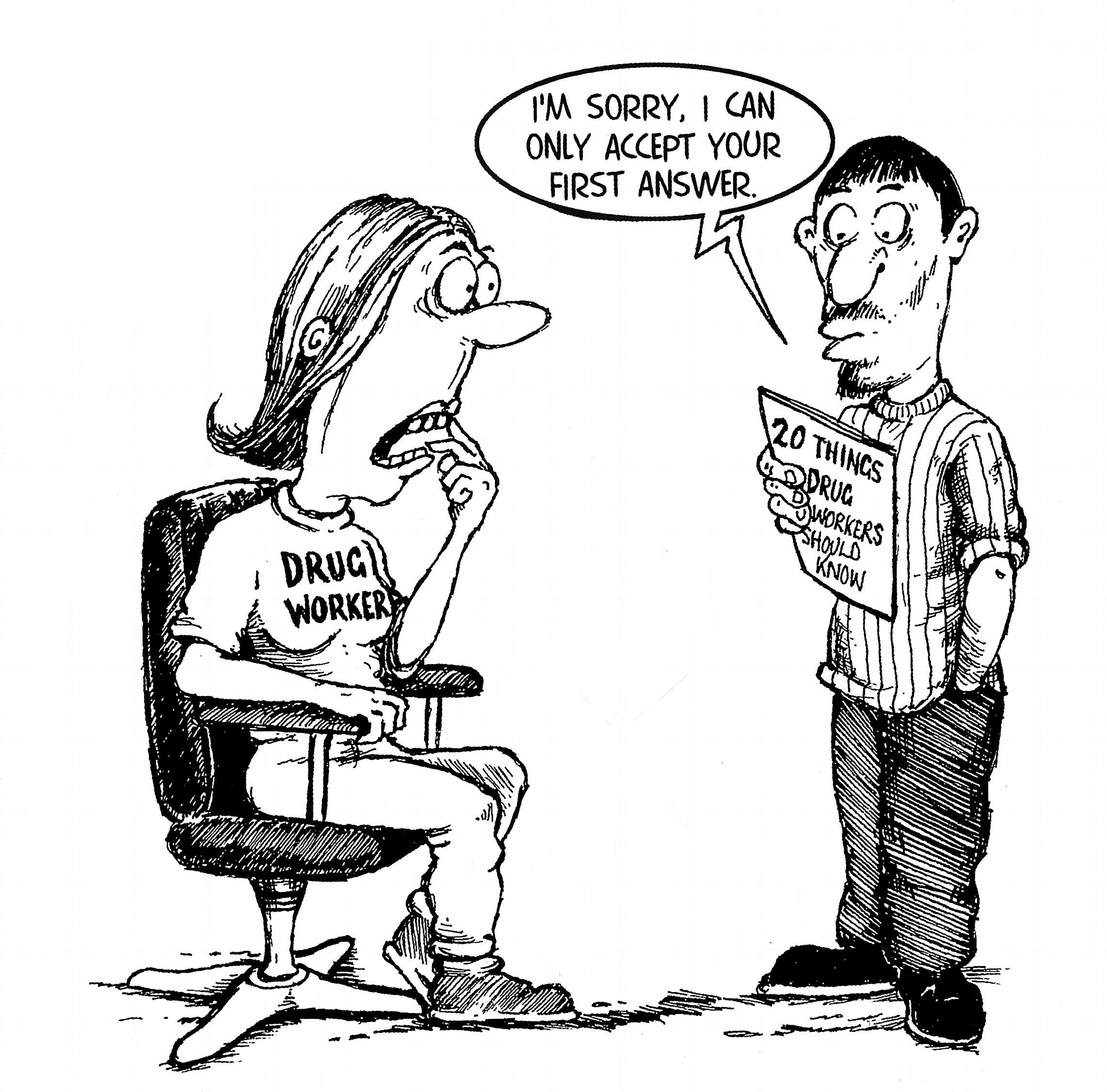
2 minute read
How Do I Know I Really Need Help?
Introduction
So, you've just robbed the last twenty out of your dad's wallet/wife's purse/sister's piggy bank, you've shot, smoked or snorted all the gear, you need to do something before they find out and finally cut you off. They've been on at you for long enough to see somebody about the problem, but who do you see? There's so many different places, all offering completely different types of treatment. How can you tell which one is the right one for you? Do you need methadone? A detox? Long-term or short-term? What about the black box? Acupuncture? What about a miracle cure like Heatanos and UROD? Before you sign your life away, you need to read McDermott's Guide to Drug Treatment — the first no-bullshit Michelin guide for smackheads, crackheads, temazzie monsters and others in need of a temporary escape clause.
There are hundreds of different reasons why people decide they need help with a drug problem. Some of the most common ones are:
bYour parents have sussed you out so you want to get them off your back.
bYour boss has sussed you out, and you've got to pay for your drugs somehow.
bYour partner says that they'll leave if you don't – and it looks like they mean it this time.
bYou've been nicked again. Unless you can give the court something reasonable in your plea of mitigation, you're going to jail. Do not pass go. Do not collect a methadone detox on the way. The £200 isn't going to be any use where you're going.
bYou finally recognize that you don't have any control over your drug use. You want to stop for a while, or at least try to cut down, but you don't seem to have any control. Your willpower keeps on slipping, just long enough to break your determination. Given that you feel incapable of helping yourself, perhaps somebody else can.
A Caution
Before you decide to go to a drugs agency, there are a few things that you should know about drug treatment in the UK. If you go to see a doctor, a social worker or a probation officer, the person that you see will have received some training for the job. If you go to a drugs agency, their worker that you see is unlikely to have been trained as a drugs worker. They may have trained in another discipline, such as nursing, social work or youth work and the amount that they actually know about drugs or drug problems often varies immensely. While the situation has improved somewhat over the last ten years, with a greater availability of training, and more and more services hiring staff who have a genuine interest in the subject, the quality of service you receive can still vary widely, both from agency to agency, and even within a particular agency. Regrettably, much of what drug services do is about justifying their existence or building empires and securing salaries, rather than addressing problems effectively. That said, there are many good, committed workers out there who will do their





